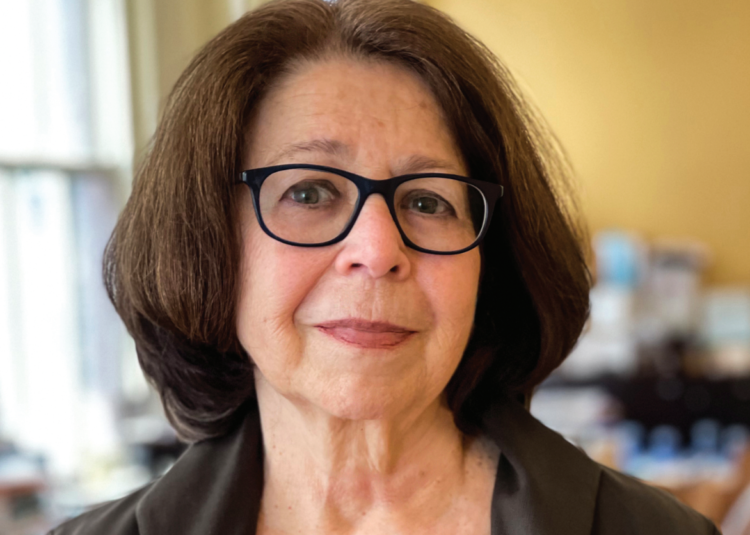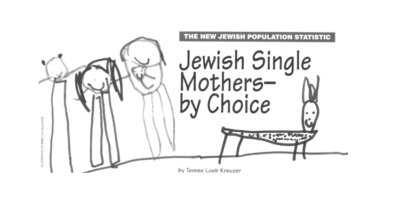
From the Editor
Here it is—another demographic trend with Jewish women in the forefront. All women in the Western world now marry later (if at all), but Jewish women are waiting even longer than the others. All women stay in school longer than ever before, but Jewish women are the best educated women in the U.S. today. All this we’ve heard before. What’s new now? Jewish women are significantly overrepresented among the growing numbers of unmarried, well-educated, self-supporting women in their thirties and forties who are having children without partners. Why? The reasons are complicated.
Partly, as you’ll see in the articles in this issue, the phenomenon is driven by a Jewish urge to have a role in creating that next generation—a natural generative urge for everyone, but with special poignancy for Jews. But another reason has to do with the shrinking numbers of eligible Jewish men as mates, both because of rising intermarriage rates of the men and because of the later age at which Jewish women seek them out (the majority of women still want to marry men who are older than they are, so with each year of age an unmarried woman faces a smaller pool of older men in her “field of eligibles”). This explains why Jewish women are twice as likely to be single as other white American women (15% will be single through their childbearing years, as compared with 7.5% of other white women, the control group for the statistics in the 1990 National Jewish Population Survey).
One factor that these numbers don’t let on: the main reason many Jewish women are now able to consider having and/or raising children alone is economic. For the first time, a whole subset of women do not need partners for financial or social support in order to become mothers. The rules have changed in a mere 20 years. Women’s economic empowerment makes possible a whole different set of alternatives, one of which is that marriage and other long-term relationships can be entered into for their sense of shared purpose and pleasure, not merely because one member of the couple provides the money or the social context for the other to fulfill her biological, social and emotional role as a mother.
Women now have the economic means to make very different life choices than their mothers did. For middle-class women, choosing to have kids alone is just one highly visible signifier of this alteration.
When we think of single parents, what comes to mind usually is a solitary parent raising children in the wake of divorce or death. The emergence of women who are consciously choosing this option (albeit, as reporter Terese Kreuzer points out, for some it is not their first choice), means that the Jewish community, especially those of us in it who operate under the banner of married privilege, should rethink how we welcome all Jews. Unmarried Jewish women exist in larger numbers than the community has heretofore recognized. Far more attention has been paid to the National Jewish Population Survey’s findings on intermarriage than its findings about the ways single Jewish women are living their lives. The most poignant comment in the conversation Kreuzer and I had with various women who have chosen to be single mothers came from an Orthodox woman in California. Her social status rose dramatically after she adopted a child. “Aren’t I the same person I was before?” she asks. “Didn’t I need a community then, too?” No matter whom they choose to marry, eventually, or if they marry at all, single Jewish women are a population in need of the best outreach efforts of synagogues and all the Jewish organizations and agencies that claim to want to find and keep more Jews.




